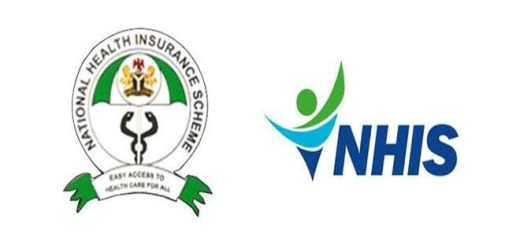How to File an Insurance Claim in Nigeria: A Step-by-Step Guide
Are you looking for a guide on how to file an insurance claim in Nigeria?
The process of filing an insurance claim can be a tedious process, especially if you don’t know the right steps to take. With insurance in Nigeria penetration still very low, many people lack experience navigating the claims process.
However, by following some key steps, you can file your claims correctly and increase the chances of getting compensated.
This article provides a step-by-step guide on how to file an insurance claim in Nigeria.
HOW TO FILE AN INSURANCE CLAIM IN NIGERIA: A STEP-BY-STEP GUIDE
Below are the steps on how to file an insurance claim in Nigeria.
STEP 1: NOTIFY YOUR INSURER
The first thing you need to do when you suffer a loss is to notify your insurance company. This is usually stated clearly in the policy document, including the timeframe within which you’re expected to contact them. Depending on the type of insurance and policy, this can range from 24 hours to a few weeks.
For instance, automobile policies normally require that you notify the insurer immediately after an accident, injury or third-party damage. Health insurance policies may require notifications within certain days after discharge from hospital. Failure to meet the set timeframe can lead to denial of your claims.
When notifying your insurer, provide accurate details of what happened and the extent of damage or loss suffered. If possible, take photos and videos of the damage to support your report. Ensure to take note of the date and names of the staff you spoke to for future reference.
STEP 2: COMPLETE ALL PAPERWORK
After notifying your insurer of the loss, the next step is to request or download any forms that you need to complete to file the claims. The exact forms required may vary based on the type of insurance and specifics of what is being claimed.
Typical documents needed when filing insurance claims in Nigeria include:
- Claim Forms: Provided by your insurance firm to capture details of what is being claimed.
- Police Report: Needed especially for loss of assets, automobile accident, injury or death claims.
- Invoices and Receipts: To prove ownership and extent of loss suffered. Includes medical bills for health insurance claims.
- Statutory Declaration: A written statement declaring details and confirming the claims being made.
Go through the forms carefully and ensure to provide accurate and consistent information regarding what happened. Where necessary, consult with your legal counsel before signing the declaration.
STEP 3: GATHER SUPPORTING DOCUMENTS
In addition to the claim forms given by your insurer, you need to gather third-party documents that can prove your loss. These supporting documents validate the claims being made and are vital for getting compensation.
Some important supporting documents needed when filing insurance claims in Nigeria include:
- Photographs: Take clear photos proving damage, loss or injury suffered. Can support vehicular, home and business policies.
- Medical Reports: Needed for health, life or accident claims. Show diagnosis, treatments done and discharge summary.
- Invoices and Valuation Reports: Include invoices for treatments and replacements, as well as valuation reports for lost items.
- Policy Documents: Provide copies of your full policy document, especially the sections relevant to your claims.
The more relevant third-party documentation you can include to support your claims, the faster the processing and better the outcome. So gather all useful evidence before submission.
STEP 4: COMPLETE ALL REPAIRS, TREATMENTS OR REPLACEMENTS
Certain insurance policies require that you complete all repairs, treatments or replacements first before claims can be settled. This includes health policies covering in-patient admissions, as well as automobile and household policies.
Where this is required or advised by your insurer, ensure to use registered vendors and keep all invoices and receipts issued. Submit these alongside your claims for refunds based on policy limits and terms.
However, for some insurance like business policies it’s advisable to file your claims before incurring huge expenses by yourself. Consult your insurer so you understand exactly what’s required regarding repairs and replacements as this affects settlement.
STEP 5: SUBMIT CLAIMS PACKAGE TO INSURANCE COMPANY
Once you have gathered all the relevant documents, the next step is submission to your insurance provider in line with stipulated timelines. This entails sending completed forms, supporting documents and proof of expenses incurred to process the claims.
Most insurance firms in Nigeria currently allow claims package to be submitted physically to their offices nationwide. However, some now offer online and mobile apps for uploading soft copies of documents directly to relevant departments.
Where available, using digital submission through dedicated portals and tools expedites processing, payment and provides tracking capabilities not available when submitting physically.
STEP 6: FOLLOW UP ON CLAIMS STATUS
After submission, continue following up frequently with your insurer to get updates regarding the status of your claims. Most delays and denials can be minimized by persistently tracking and engaging your insurance firm.
Enquire if any additional documents are required to complete evaluation and clarify any grey areas. Also, understand process timelines so you can follow up if delays are noticed. Recording the name of staff you spoke to during follow ups enables easy reference.
STEP 7: PROVIDE ANY ADDITIONAL INFORMATION REQUESTED
It is common during claims processing that insurance adjusters request further documentation or information regarding areas that are unclear. Some policyholders see this as a deterrent.
However, diligently providing any additional relevant information requested gets you closer to settlement and reduces further back and forth. Cooperate fully if the insurer asks for things like sworn affidavits, medical examinations or investigators statements.
STEP 8: ACCEPT OR CONTEST SETTLEMENT OFFER
Eventually, your insurance firm will provide a settlement offer based on assessments done and policy terms applicable to your claims. At this point, you will accept or contest the offer if unsatisfactory.
Before accepting, carefully review the computations and deductions done to arrive at the final settlement figure. Ensure accurate policy limits were applied and agreed depreciations or excesses were not excessive or arbitrary. Dispute identified discrepancies.
If dissatisfied with the offer after engagement, follow laid out complaints and arbitration procedures stipulated by your policy. Alternatively, you can sue the insurer. Though, legal action should be a last resort after exhausting other options.
STEP 9: RECEIVE CLAIMS PAYMENT
Once the claims settlement amount has been agreed to by both parties, the next step is to receive your payment. Confirm with your insurer the payment process and timelines so you can follow-up to ensure a smooth closure.
Final settlement payments for insurance claims in Nigeria are made directly into claimants bank accounts usually via electronic transfers or deposit of settlement cheques.
Update your bank account details if changed recently to avoid delays that arise when settlement cheques need to be re-issued due to invalid accounts. Also provide a valid tax identification number for tax purposes before final settlement.
COST OF FILING AN INSURANCE CLAIM IN NIGERIA
What you should note is that filing an insurance claim in Nigeria typically does not involve much direct financial cost on the policyholder’s part.
The major cost components for claimants are usually the time and effort required for preparing documentation, following up on claims status, and cooperating with insurer investigations.
Minimal charges that may apply during the claims process are things like transportation costs for submitting papers to insurance provider offices or photocopying/notarization charges for multiplying claim documents.
By and large, Nigerian insurance companies do not impose any administrative fees or direct expenses for filing claims, regardless of the claim amount or whether the claim eventually gets approved or denied.
The process from intimating insurers of loss events to claim closure is largely cost-free for claimants in the Nigerian insurance claims process.
CONCLUSION
Filing an insurance claim begins immediately after suffering a loss and requires diligence and patience to successfully navigate through the documentation, assessment, evaluations, correspondence and payment processes. While the procedures may seem cumbersome, they help safeguard against fraudulent claims which increases premiums for all policyholders.
By knowing and correctly following all the key steps outlined in this article, you can ensure a smooth claims process and positive outcome.



